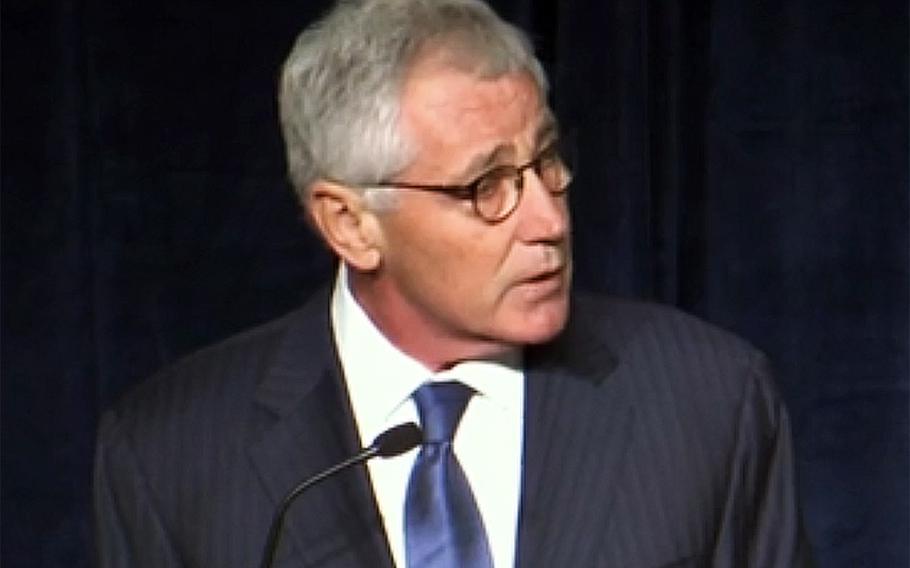
Secretary of Defense Chuck Hagel speaks at the Association of the United States Army conference in Washington, Oct. 15, 2014. (From a DOD News video)
WASHINGTON – As the post-9/11 counterinsurgency wars come to an end, the Army must reorient itself to conduct full-spectrum operations and new missions, Secretary of Defense Chuck Hagel said Wednesday.
“In the near term, the Army is unlikely to repeat another Iraq or Afghanistan-type campaign – that is, regime change and occupation followed by nation-building under fire,” he told audience members at an Association of the United States Army conference in Washington.
He said the service must be prepared to deal with a wider range of threats, including a revisionist Russia, disruptive technologies like cyber warfare, humanitarian crises like the Ebola outbreak in Africa and “hybrid warfare” where America’s adversaries combine the insurgent tactics with the technologies of advanced militaries.
To prepare for the tasks of the future, the Pentagon chief said that soldiers need to experience full-spectrum training at brigade-level centers where they are immersed in realistic threat scenarios facing guerilla, terrorist, criminal and sophisticated conventional forces.
He singled out the Joint Readiness Training Center at Fort Polk, La., and the National Training Center at Fort Irwin, Calif., as model facilities for such activities.
Hagel’s remarks came at a time when some believe that the Army’s relative importance is on the wane as the war in Afghanistan winds down and the Pentagon’s attention is shifting to the Pacific, where the Navy and Air Force would likely play the leading role in potential conflicts.
“This does not mean that demand for the Army is diminishing, or that the Army’s place in our national security strategy is eroding. It is not,” the secretary said.
He told the audience that the service that did “most of the fighting and dying” in Iraq and Afghanistan will remain very busy with overseas deployments and rotations, large-scale training missions and other efforts. The Army won’t become a “garrison” force at home, according to Hagel.
He said the Army might adopt new missions and tactics that could prove useful for the Pacific pivot, including flying helicopters off ships, and leveraging its arsenal of long-range precision-guided missiles, rockets, artillery and air defense systems to keep the sea lanes open and provide coastal defense.
But Hagel warned that the Army’s busy future could be undermined by Congress.
“We’ve seen how quickly a battle-hardened Army can wither into a force that is ill-equipped and ill-prepared to carry out its mission,” he said. “We’ve seen the consequences.”
He called Congress’ failure to reverse the looming defense budget cuts known as sequestration as “an irresponsible deferral of responsibility,” and warned that cuts could result in an Army that isn’t ready to carry out the missions assigned to it in the future.
harper.jon@stripes.com Twitter: @JHarperStripes